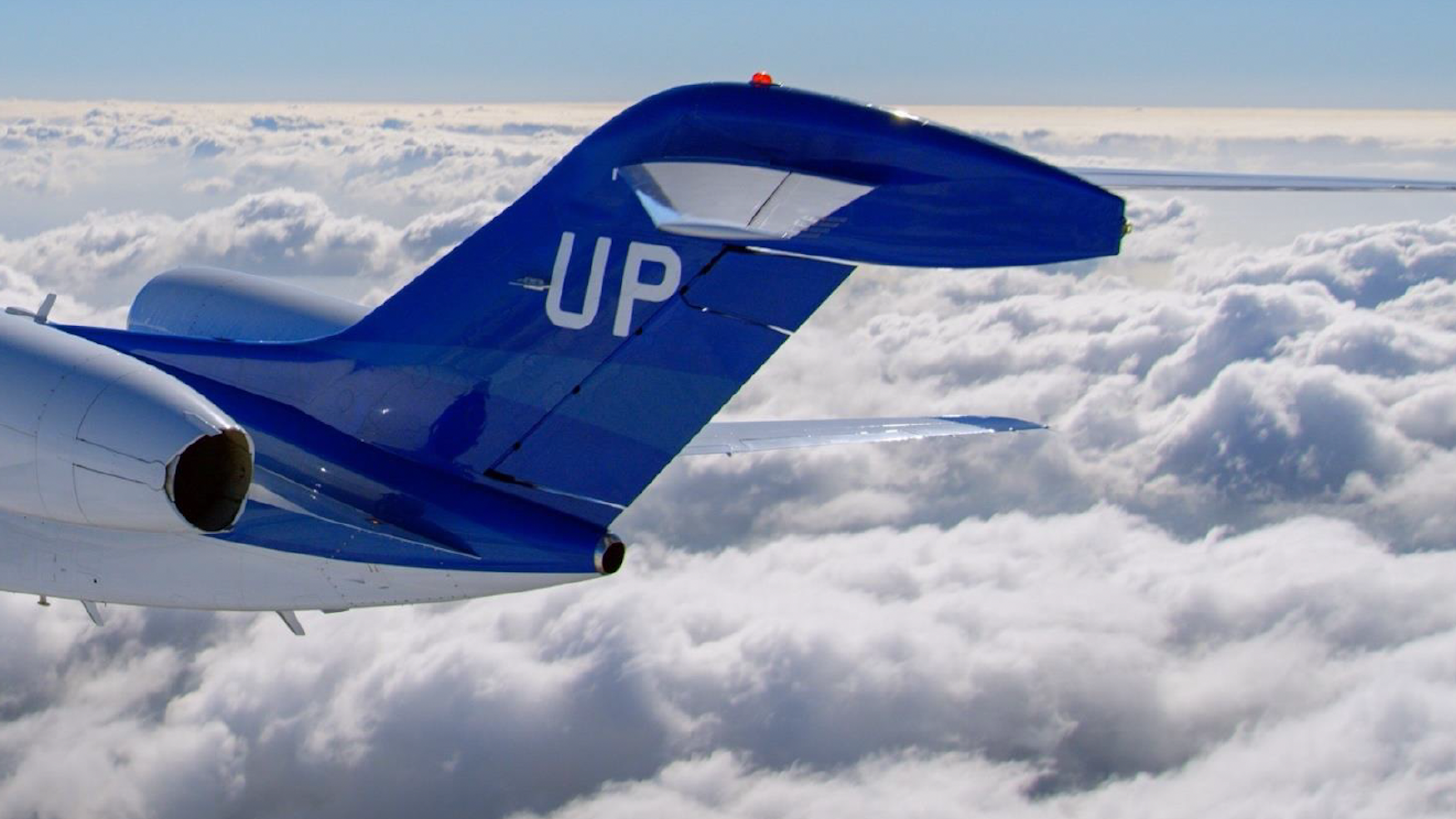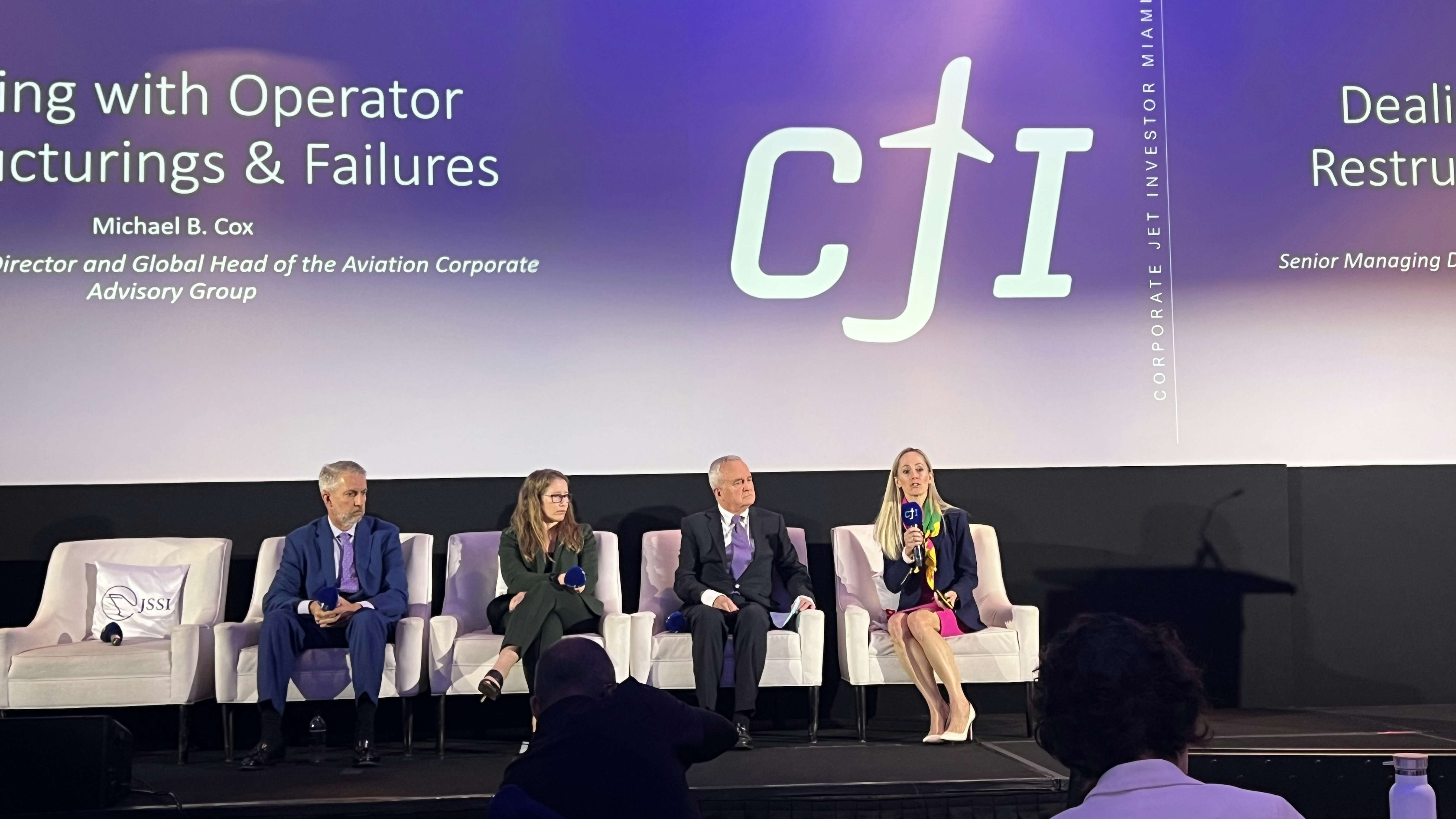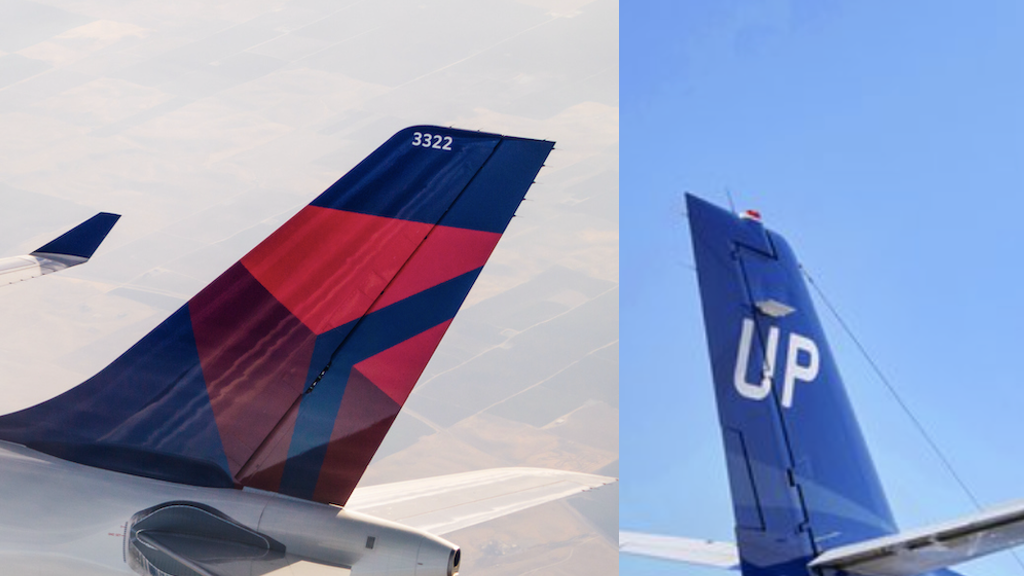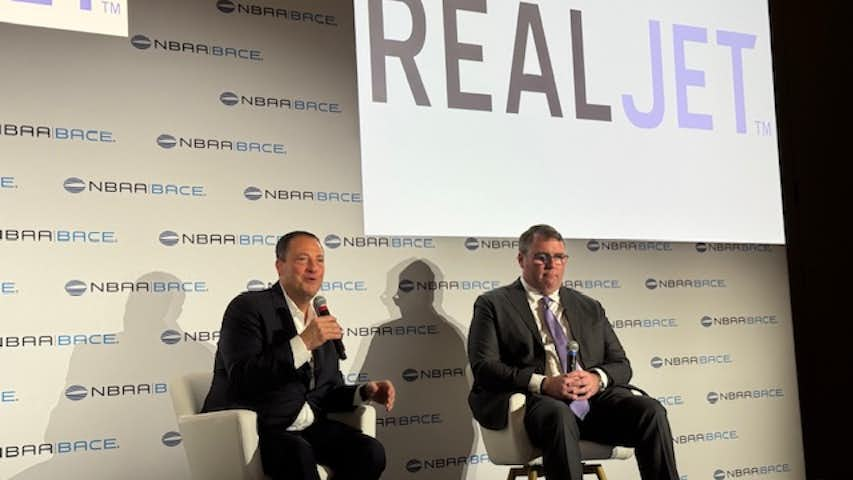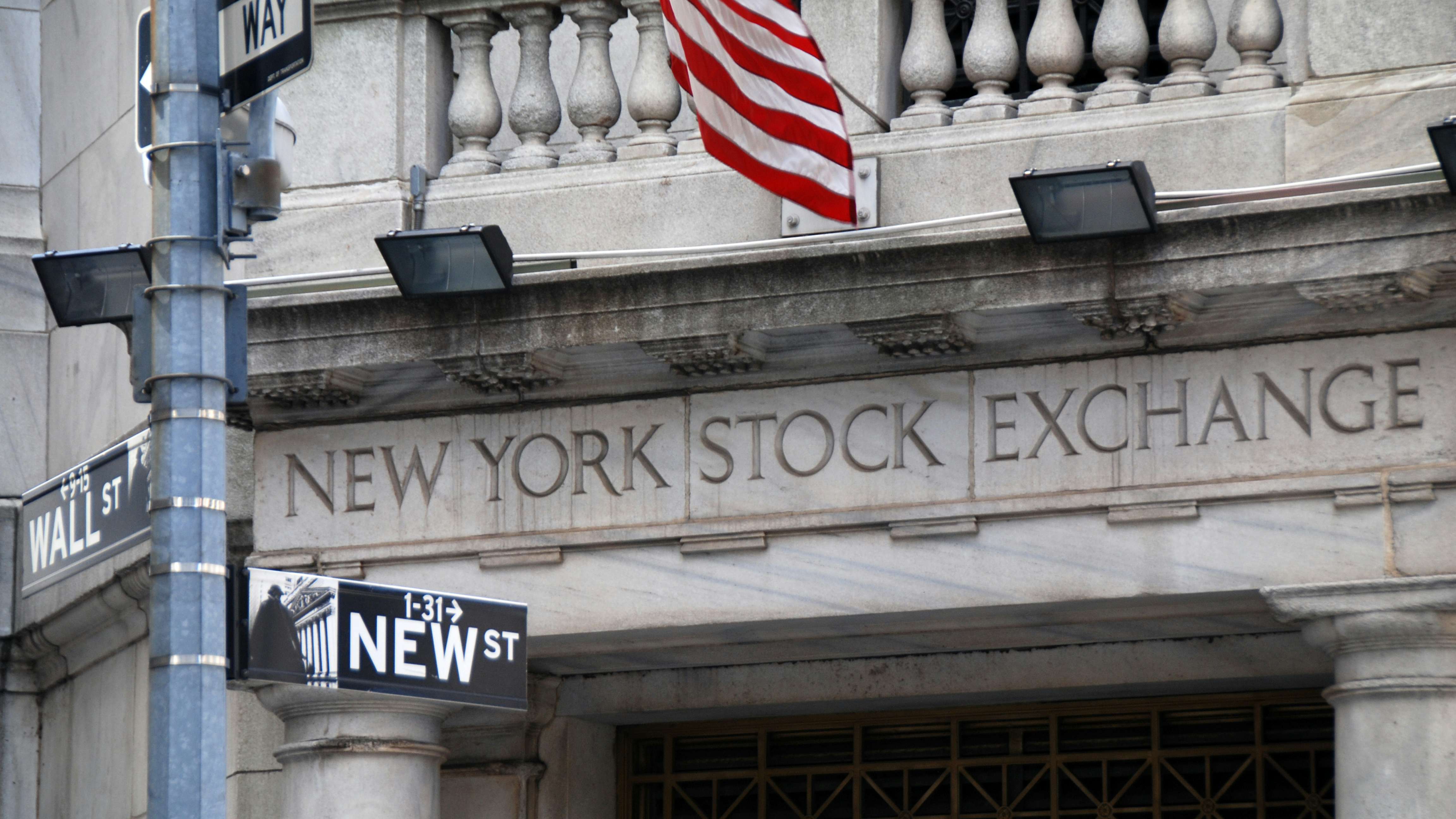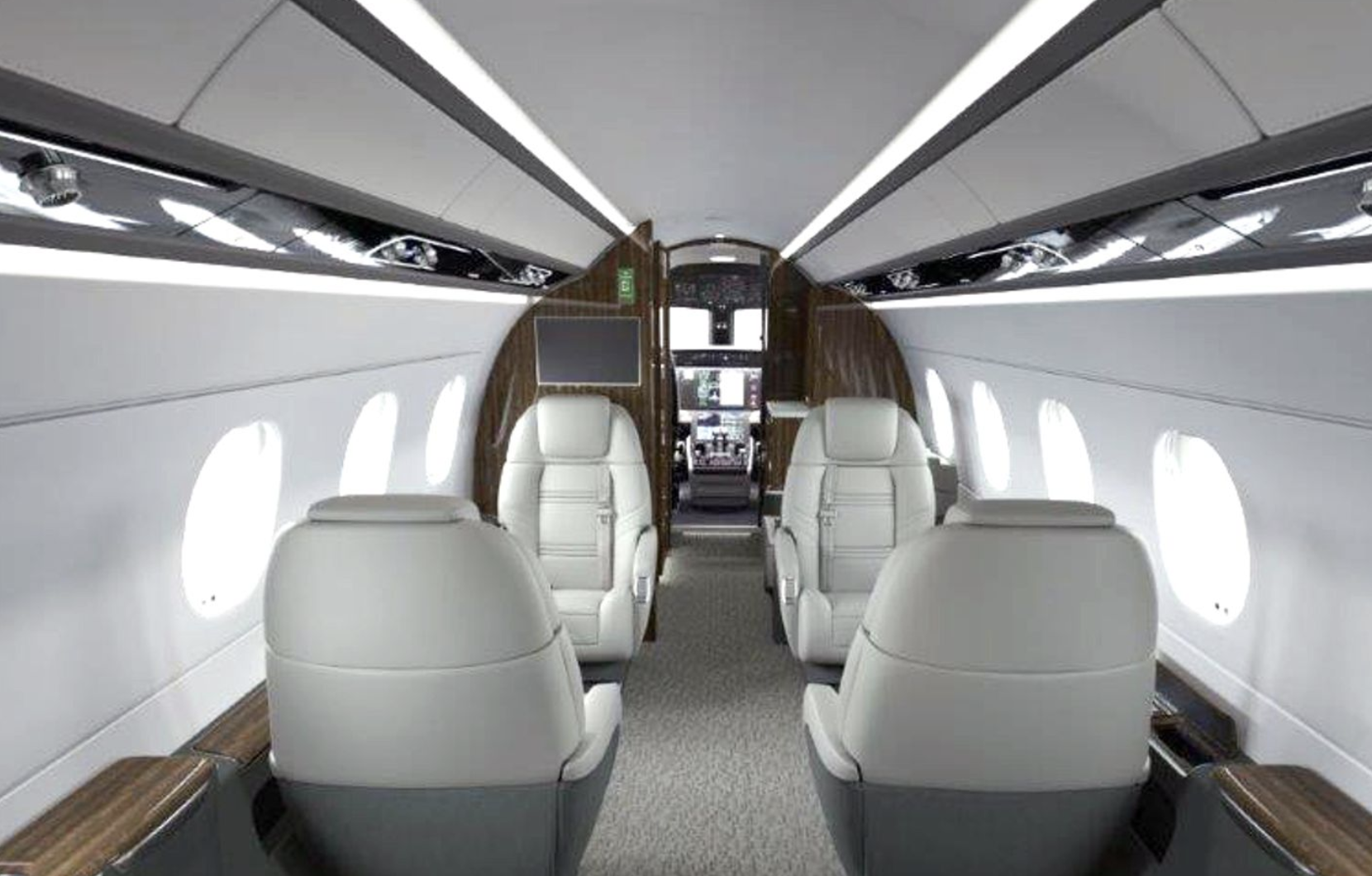RW Baird and Jefferies analysts set target prices for Wheels Up at $12 and $13 per share
Two more Wall Street analysts have issued opening perspectives on Wheels Up Experience. The private aviation company began trading on the New York Stock Exchange under the symbol UP earlier this month. Both analysts are markedly less bullish than Barrington Research’s Gary Prestopino. He set a price target of $19 to $21 for his 24-month outlook.
In her 57-page report, Sheila Kahyaoglu of Jefferies lists Wheels Up as a buy with a target price of $13. She puts the upside at $19 and the downside at $6. Michael Bellisario of RW Baird pegs the stock at $12. He rates the private aviation company as a hold in his 33-page report.
Stock analysts review Wheels Up
Starting with Bellisario he says, “Our $12 price target is based on an applied 1.9x EV/sales multiple on 2024 estimates, which represents an approximate 30% discount to the comp set median. Our price target implies 30x EV/EBITDA (2024E). We believe the business can perform well over the near term given positive fundamental tailwinds, and we would become constructive at a more attractive valuation, if organic growth proves to be more sustainable, and/or if earnings move higher as longer-term financial targets appear more achievable.”
Kahyaoglue writes, “Wheels Up is a hi-tech lifestyle co redefining and expanding the market for luxury travel. Our buy rating is based on UP’s revenue and margin opportunity. TMA (the addressable market) expansion from $31 billion today to $80 billion in 2025 on lower barriers to private flight should drive double-digit sales growth. The asset-light model offers scale opportunities to drive 12 points of adjusted EBITDA by 2023E. Our adjusted EBITDA of $59 million drives our $13 price target based on aerospace and technology peer average 24 times EV/EBITDA.”
Fundamental questions for Wheels Up
Bellisario raises what he says are fundamental questions about the company. While Wheels Up has built brand awareness comparable to leader NetJets, he asks, “Can Wheels Up grow its brand equity and social media presence to the point where the company becomes a household name in the U.S.? “
He also asks, “To gain market share and or grow the total addressable market, does Wheels Up need to decrease price to make private aviation even more affordable for prospective customers?”
Then there is the post-pandemic world. “What will retention rates look like in 2022 and beyond in a more normalized macroeconomic and travel environment?” Bellisario asks.
One particularly interesting question is based on a 2018 Wheels Up members survey. Respondents noted they only spent 45% of their private aviation dollars with Wheels Up. He asks, “Who else are they spending with, and what is preventing them from being exclusive Wheels Up customers?”
Lastly, he asks, “Over the long run, what are the business’s stabilized margins, and when might CapEx spending increase?”
Democratizing private aviation
Bellisario is bearish on Wheels Up’s ability to entice single-digit millionaires to the private skies. He writes, “The penetration rate assumptions are high, in our opinion, and the results from our consumer survey support our view that uptake among the $1-$5 million and $5-$10 million net worth buckets is likely to be lower than what management estimates, especially if the average cost of a seat does not decline to a more affordable price point over time.”
While the Baird analyst lauds Wheels Up’s “strong post-transaction balance sheet,” he only sees “one-off opportunistic” acquisitions. He believes the company’s pathway to profitability is anchored in the U.S. International expansion through “asset-light managed and third-party fleet aircraft” could be additive. External growth could also come via “travel-related adjacencies.” Brokering yachts and villas have been cited by the company.
Will companies flock to private jets?
In her analysis, Kahyaoglu highlights an opening that hasn’t received much attention. About the business travel market, she writes, “There is also opportunity for UP to gain traction among Fortune 100 companies. We gather less than half or 46% of Fortune 100 companies own one or more aircraft, providing opportunity for membership ownership. The remainder relies on fractional, membership, or commercial aircraft for lift. Additionally, those companies that own business jets may supplement fleets with UP for incremental lift when core fleets do not meet mission requirements.”
The analysis also includes results from Jefferies semi-annual business jet broker survey conducted in June. Nearly all respondents (98%) said Covid has led to an increased interest in private jets. Almost half (45%) said the interest will result in more demand for fractional and charter programs. Nearly one in five (19%) believe health risks will increase usage by companies.
A survey of subscribers to Private Jet Card Comparisons earlier this month found 69% plan to increase private flying post-pandemic. Only 3% say they will fly less.
Kahyaoglu points to the capped rates with dynamic pricing Wheels Up offers as a possible answer to Bellisario’s question about how the company will gain a share of the wallet. With capped hourly rates, members who fly during low-demand periods get better pricing. That could bring increased usage from customers who charter when fixed rates are high compared to the market.
The buy recommendation from Jefferies infers a total return of 15% or more within a 12-month period.
Wheels Up marketing
Both Bellisario and Kahyaoglu thoroughly cover themes we’ve reported on before, including democratization, digitalization, and Wheels Up’s objective of creating Amazon-like private aviation – and perhaps luxury lifestyle – marketplace.
Both laud the company’s marketing prowess. Bellisario points to spikes in Google search interest directly tied to promotional announcements as well as CEO Kenny Dichter’s CNBC appearances.
One point that’s clear from reading all three analyst reports is they depend significantly on company-provided data and forecasts. In fact, there is no publicly traded direct competitor to use as a benchmark. Many of the comparisons go to the likes of Netflix and Airbnb. After reaching a high of $15 on July 14, shares in Wheels Up have since retreated to below the $10 IPO price. They closed at $7.41 yesterday.



